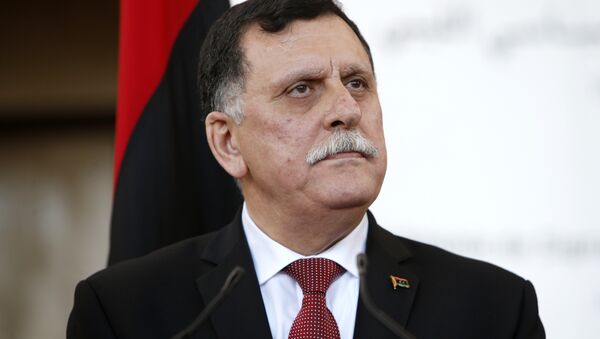Sarraj addressed Libyans by phone. The recording was posted on the Tripoli-based government's website.
"I call on all Libyans to turn the page on the past, reject discord and to close ranks to move towards stability and peace together ... We must understand that our differences must be resolved democratically, through a dialogue in which there is no place for dictatorial rule," Sarraj said.
The head of western Libya added that the ceasefire agreement was reached to "prevent further shedding of Libyan blood."
"We are ready to resume fighting and defeat the aggressor if this agreement is violated," Sarraj said in his address.
Earlier in the day, it was reported that the head of the Libyan National Army (LNA), Marshal Khalifa Haftar, had arrived in Moscow, where he could hold talks with the GNA leader.
The latest Russia-Turkey brokered ceasefire came into effect at midnight on Sunday. The GNA accused the other party of almost immediately violating the ceasefire, however, Turkey later stated that the truce was generally being observed.
The situation in Libya has escalated over the past several weeks, as LNA commander Haftar ordered his troops to advance on the Libyan capital of Tripoli, controlled by the UN-recognized GNA. The city has already experienced being the battleground of a similar attack in April, when hundreds of people were left killed and thousands more injured.
After the ouster and assassination of then-Libyan leader Muammar Gaddafi in 2011, the country was plunged into a brutal civil war. Today, Libya is divided between two centres of power: an elected parliament in the country's east, and the UN-backed GNA in the west.


